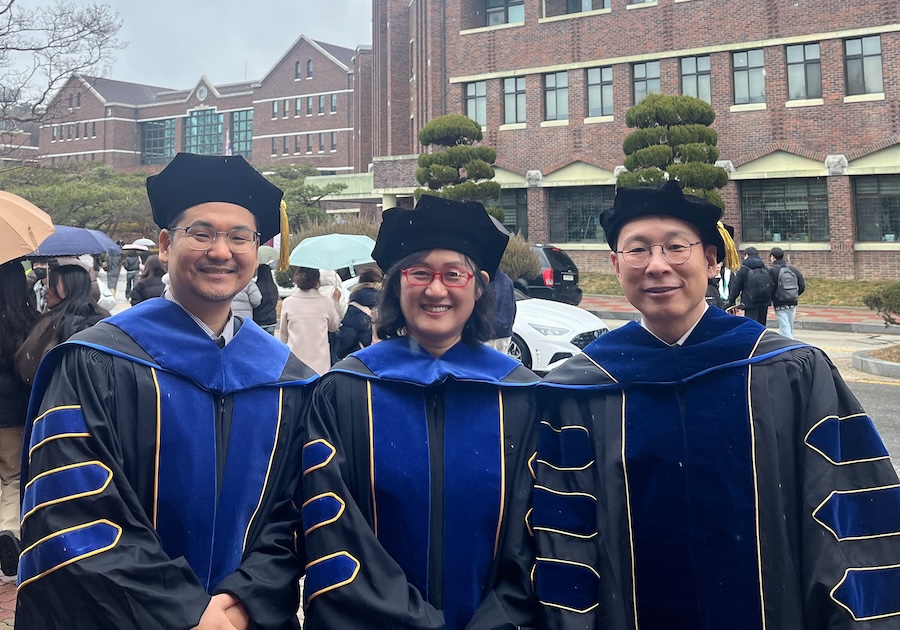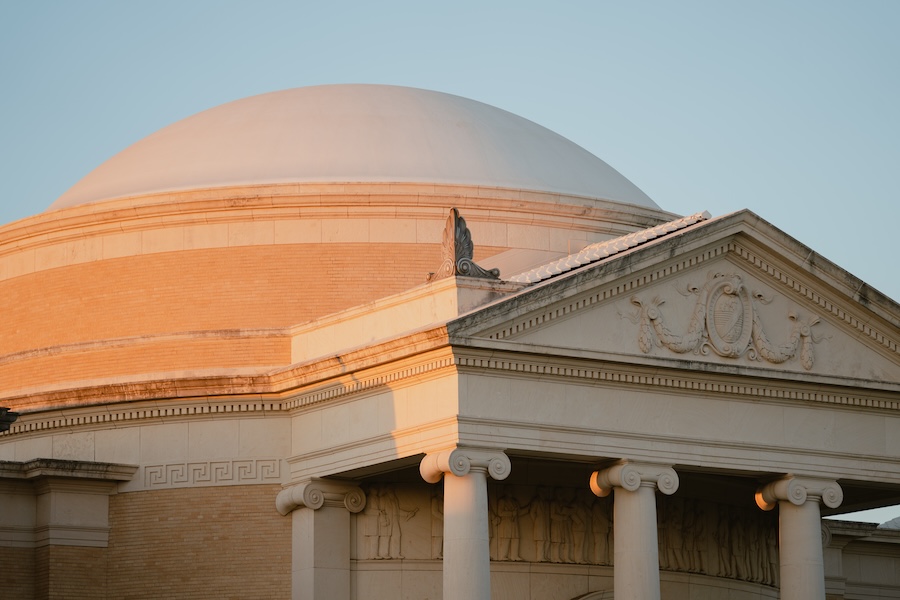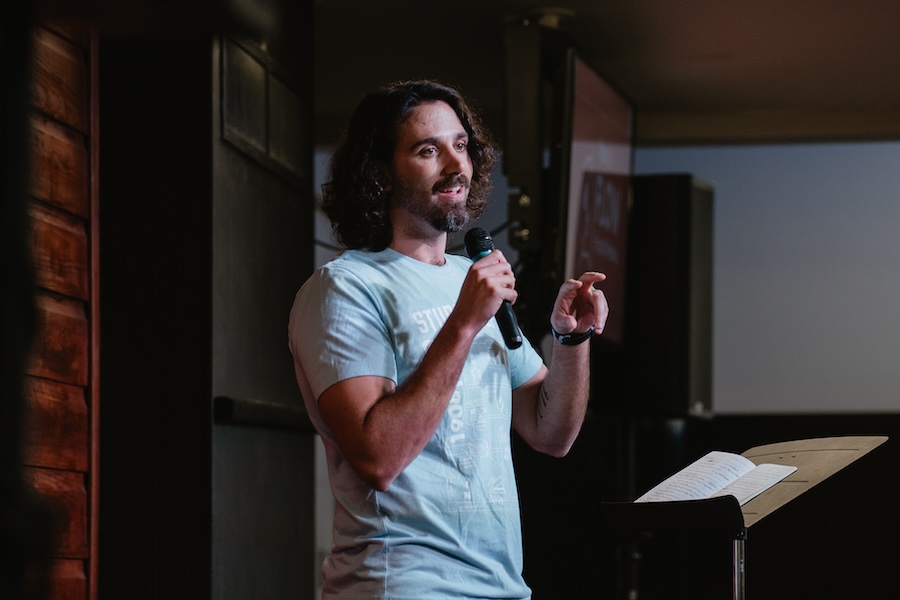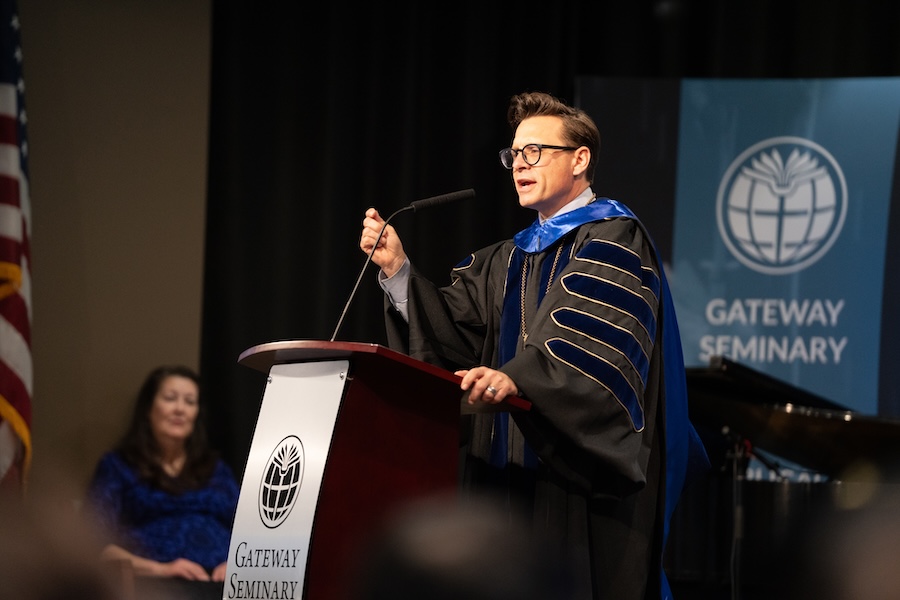‘Miracle from God’ needed, Ukrainian Baptist leader, Southwestern alum, says
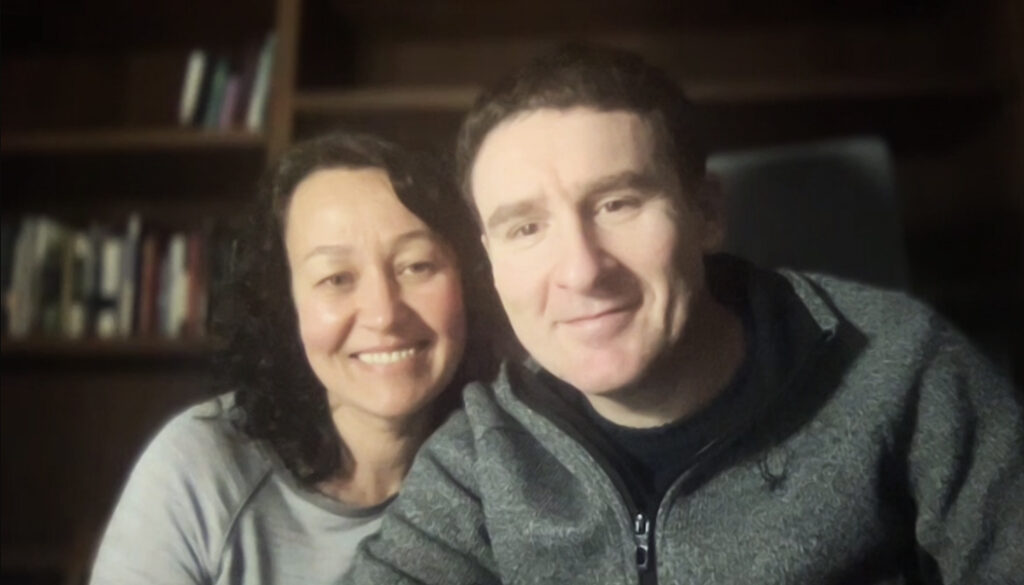
Lviv, Ukraine (SWBTS)—“We need a miracle from God,” Yaroslav Pyzh, president of the Ukrainian Baptist Theological Seminary in Lviv, Ukraine, said from his western Ukraine home in a Zoom interview with Southwestern Baptist Theological Seminary’s news staff on the evening of Feb. 26. As he prays for the miracle, Pyzh is marshaling the people and resources of his school to help refugees of the war.
Pyzh, a 2012 Doctor of Philosophy graduate of Southwestern Seminary, has served as president of the Ukrainian seminary since 2013. Lviv is 600 miles west of the capital city of Kyiv, where Russian forces have been trying to capture the nation’s capital since invading the country in the early morning hours of Feb. 24. Many Ukrainians have been fleeing the country through the western Ukrainian city, which is approximately 40-miles from the shared border with Poland.
Initially, Pyzh thought he and his wife of 25 years, Nadia, would be safe in Lviv. However, actions of the last three days have shown otherwise, though the city has not been hit directly yet, Pyzh said.
“We thought that Lviv is a safe place,” Pyzh said. “But it turned out to be that Lviv was not that safe. We have air raid sirens off and on. We’ve been hit by ballistic missiles, about 20 kilometers away from Lviv and we kind of lost that safety. So that was an awakening kind of feeling.”
Pyzh recognizes as “partners” from the West begin to supply Ukraine with aid through Poland, the convoys must travel through Lviv, “and my concern is that Russia will start targeting Lviv.”
This has led Pyzh to ask believers to pray “for a miracle” because “in Ukraine the only thing that will help us is God’s miracle.”
“We just need a miracle and that’s exactly what will save us–God’s miracle,” Pyzh said. “So, I ask people to pray for a miracle without specifying what miracle.”
Pyzh correlated the current situation in Ukraine with the story of Gideon from Scripture.
The story “kind of stands out” with Gideon’s small “army of 300 going against thousands of people,” Pyzh observed. “In our case, we have a disadvantage in everything.”
But, Pyzh said Ukrainians are “strong in their spirit” with a “great willingness to fight.”
Following Russia’s invasion of the country, Ukrainian President Volodymyr Zelenskyy declared martial law across the country, and shortly thereafter reports began to emerge that the Ukraine State Border Guard Service forbade all men between the ages of 18-60 years old from leaving the country, which Pyzh said means only women and children are leaving. The larger cities, he explained, have also been put under a mandatory curfew at nighttime.
The curfew “is a good thing” because “it keeps people inside,” Pyzh explained. “Whoever is outside should not be outside. It means that they don’t belong here because we have a lot of people that are sent by Russia” to set GPS-enabled devices to allow ballistic missiles to target specific locations.
He said the curfew is also for “protection” as many people have left their apartments as they have fled the country and the curfew is a deterrent from break-ins.
The country has been placed under a “war state,” which means there are checkpoints entering and exiting the cities, which is for security reasons, Pyzh said.
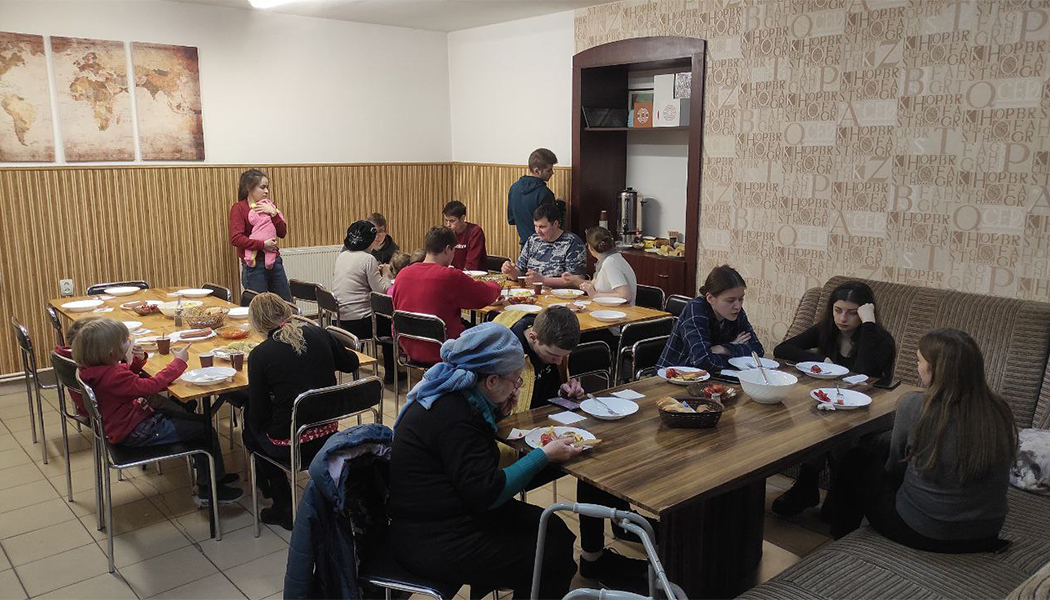
As Ukrainians are leaving the country for Poland, their trek through Lviv has opened doors of ministry for the seminary.
During the first three days of the war, the seminary served almost 250 people through humanitarian aid, offering a place to sleep, food, and counseling services. The seminary staff converted three of their buildings into makeshift dormitories with mattresses and pillows, and are prepared to convert classrooms and office space as sleeping quarters if necessary.
Two waves of refugees have come through the seminary seeking aid. Pyzh said the first wave of people, who came through the first day of the war, were in “fairly reasonable emotional condition” while the second wave, who came almost a day later, were “in very bad condition.”
“I don’t even want to know what they went through,” Pyzh said, adding “they are scared.”
On the first day of the attack, the seminary was focused on its students and alumni. Classes were in session and the on-site students from the eastern part of Ukraine could not return home. Pyzh and his team realized there were more people to help. In response, Pyzh divided the seminary staff and professors into four teams: administration and support, receiving and placing, the chaplaincy team, and the communications team. He empowered each team to use their “best judgment” in making decisions.
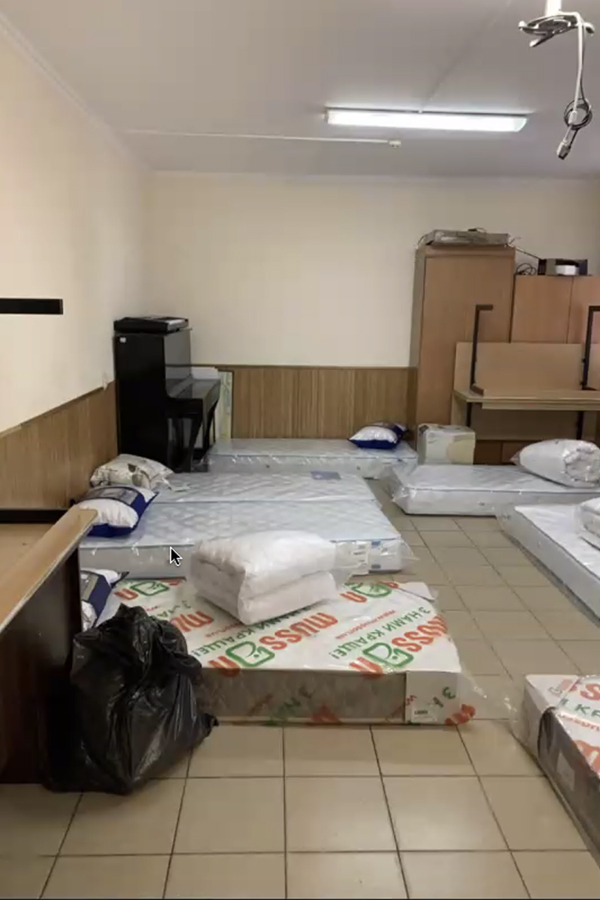
Pyzh said seminary leadership has used their network of 2,000 students and graduates in Ukraine and Poland to mobilize and offer aid to the displaced Ukrainians who are traveling through Lviv and need places to stay.
Using the same structure of the database that is used to keep track of students and alumni, seminary leadership has transferred the template into an online form that allows them to capture names, contact information, and other pertinent information of refugees who come through the seminary for help. Pyzh explained the information can be used later in the event people are “lost or missing.” The seminary can then provide information about their last known contact.
A second database was established for students and alumni to volunteer to open their homes to help house refugees. The faculty and staff of the Ukrainian seminary currently have displaced families living with them, including Pyzh and his wife who have two families in their home. The students and alumni who volunteer their homes are matched with displaced people who come to the seminary for aid as they travel through Lviv.
The third database is for those who want to volunteer to help, which ranges from providing counseling to refugees who need it, making homemade meals, providing toys for the children, or donating clothes. Many of the volunteers are the seminary’s students.
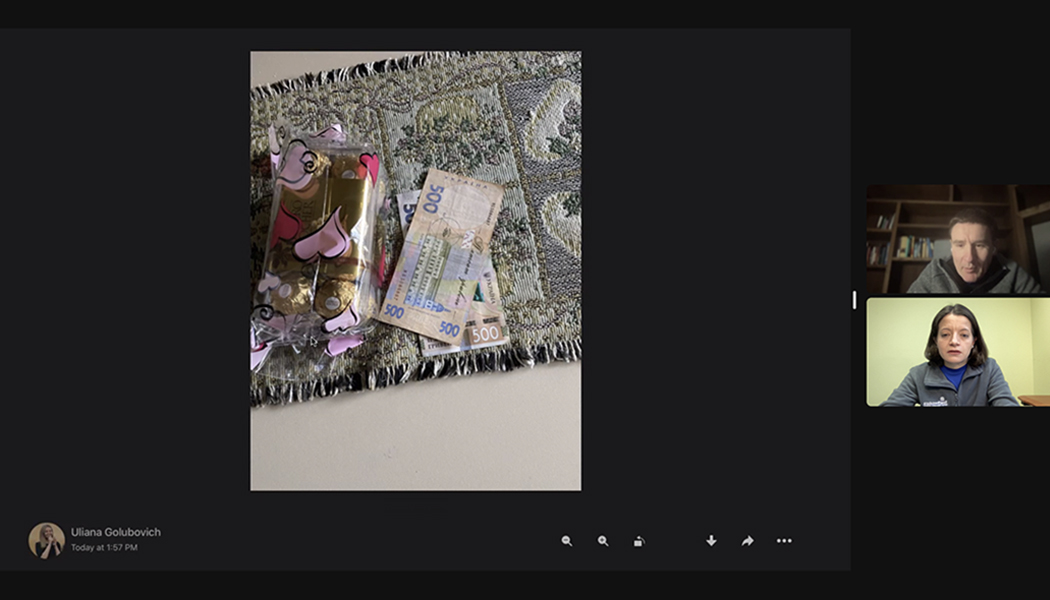
Pyzh said the seminary is not charging people for help, but explained those who have been helped are grateful, including one woman who left behind a small box of chocolates and 1000 Ukrainian hryvnia, the equivalent of approximately $35 U.S., with a note asking that the money be put toward helping someone else.
Because the country has been placed in a “war state,” large gatherings are not allowed. However, Pyzh said, churches across the nation are responding with prayer and collecting items as they have “become a center for the community where people can donate food, clothes, everything.”
“All that is happening mostly in western Ukraine, because we are not occupied and we are not having any kind of pressure,” Pyzh said. “Kyiv, Kharkiv, even Odessa, I guess, and other cities, eastern Ukraine, they cannot do that because they are under constant threat of those military actions there. But here, people are definitely open to do whatever needs to be done.”
Pyzh said during the last three days people have “gotten a lot more older” than they were previously, describing each day as a year.
“I think what our people experienced in the last three days, I’m sure changed them completely,” Pyzh said. “All the pain, all the fear, all that kind of stuff that we experiencing as making us into a different type of people. I really hope that we will become stronger. We will understand that everything we have is not really ours. We are kind of lucky to have what we have and so you better value what we have. And I really hope that as a result of that people will give glory to God.”
How to help the seminary assist fellow Ukrainians
Pyzh said believers can support the seminary through prayer and financial assistance.
Concerning prayer, Pyzh is specifically requesting fellow Christians across the world to petition God in the following ways:
- seeking a miracle from God to rescue Ukraine;
- provision of resources to serve people;
- for the war to end quickly; and
- for people to realize a miracle from God means glory goes to God.
The seminary is also seeking financial assistance through its American-based charitable organization, the Ukrainian Partnership Foundation (UPF). The money received through UPF will purchase food for relocated Ukrainians, clothes and hygiene products, medicines, bedding, and cleaning supplies, which will be used for refugees and students. Donations will also fund diesel gasoline and cover guest costs of families who must now live with their students, Pyzh said.
Donors may visit the foundation’s website here and select UBTS Emergency Fund in the dropdown menu.
Assistance to Ukraine can also be given via Send Relief.
